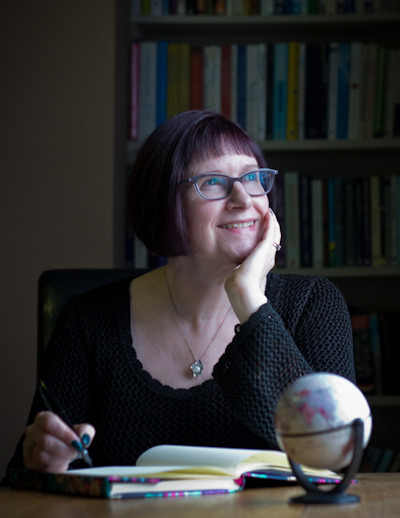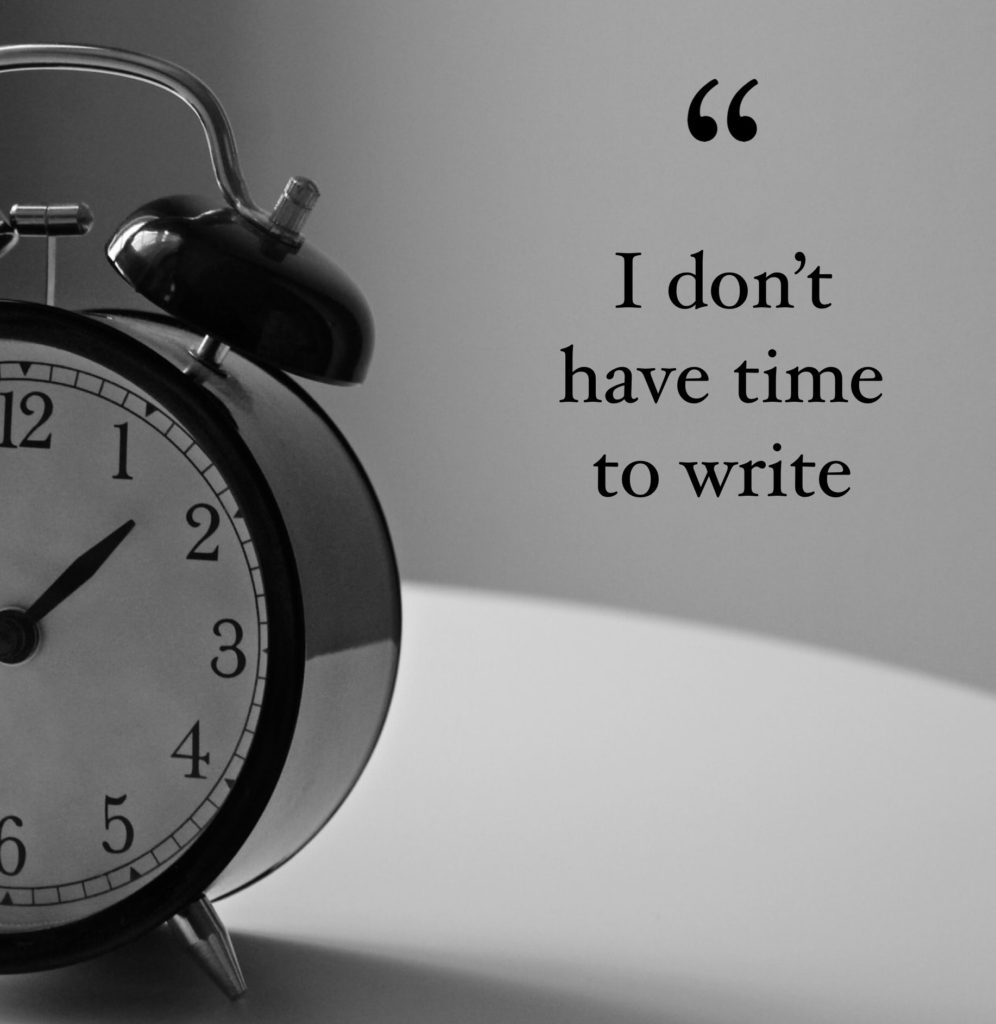I posted a blog on LinkedIn the other day and Riccardo, one of my connections/friends, commented: “Where do you find time to come up with such amazing pieces of writing?”
I immediately thought – great, thanks Riccardo! You’ve given me the topic of my next blog. So where do I find time? If you love writing as much as I do, you will always find time.
Author, scriptwriter and creative inspiratrix Julia Cameron has much to say on this topic in her book The Right to Write: “One of the biggest myths around writing is that in order to do it we must have great swathes of uninterrupted time… The trick to finding writing time is to write from love and not with an eye to product.”
So that’s what I do – I rarely think about “upselling” at the end of a blog. As Julia says, writing happens a sentence at a time – and sentences can happen in a moment. If you become obsessed with carving out a block of time to write, it can turn into writer’s block.
OK, you could say I have an advantage, as I’ve been writing professionally for 40 years. I have developed a writing muscle. Sometimes it’s toned, sometimes it has bingo wings. At the moment it’s pretty toned as I’m writing a blog here every week, plus blogs for clients, as well as Morning Pages every day.
When I feel toned, words just spill on to the page with hardly any effort. But there have been many times in my life when I haven’t prioritised writing as a creative act. I’ve waited to be commissioned, waited to be given a brief, waited for other people to tell me what they wanted me to write.
But I have learned how to get back into the habit of writing, so I thought I’d share nine tips about finding the time to write – and what to write about.
- Stop making it a big deal
If you have the germ of an idea, scribble down some notes or key phrases or whip out your phone and record yourself. Then you’ll have somewhere to start rather than a blank page. - Steal the time – don’t wait for it to open up
If you try and “make time” to write, you’ll be waiting for a long time. Ten minutes here, half an hour there – or even five minutes is enough to make a start. - “I don’t have time to write” is lazy thinking
Challenge your thinking. Is it true that you don’t have time to write? Or are you procrastinating because you’re a perfectionist, or have some limiting belief that you’re “not a real writer”? If you engage in the act of writing, then you’re a writer. - Write for the sheer merry hell of it
Enjoy writing. Give yourself permission to be creative. Write for yourself. Appreciate that words are calling you to put them on a page – hopefully in the right order. If you don’t enjoy writing, you won’t do it. - Start scanning the horizon
Be aware of what’s going on in the news, on social media, on podcasts, in conversation. Always be thinking about how to spin what you hear or read into an article or blog. - Anything can be a gateway to a story
A thought, an intuition, an insight, a view out of your window, something on Netflix, something you see on a walk, something someone said to you – literally anything can be a starting point for a blog. Once you start noticing and listening, ideas will come to you. - Give yourself time to reflect on your hook, your angle
For example, I read Riccardo’s comment and thought, that’s it – I’ll answer his question in a blog and include some quotes from Julia Cameron and some tips from me. Quite often I’ll start with something small and figure out how to make it into a blog as I write – but I understand that less experienced writers might find that hard. - Trust that you have a point of view and don’t be afraid to share it
I read so many blogs that are anodyne, soulless or what I call “painting by numbers” – writing that has followed some marketing guru’s template. Allow yourself to be opinionated – but don’t let that turn into a rant. Add value in some way – and that can be as simple as your unique perspective. - Don’t be afraid to be personal – but try to make it universal at the end
I almost always share a personal story when I write a blog – but I usually try to broaden it out towards the end so that it becomes relevant to a wider audience. But people often find themselves in your story anyway – and that’s where the all-important emotional resonance is.
I’ll give the last word to Julia Cameron: “Writing is like breathing; it’s possible to learn to do it well, but the point is to do it no matter what. We should write because writing is good for the soul. We should write, above all, because we are writers whether we call ourselves writers or not.”
And that’s why writing is worth finding time for.


Love it!
Thanks Nick! High praise from the tipsheet guru 🙂
Wonderful golden nuggets Bev!!
Really appreciate you sharing these easy to follow, straightforward tips.
Thanks for the feedback Furrah – I’ll share more in future if they were helpful.
Fab tips Beverley! x
Thanks so much Roy – lovely to hear from you!
Good to see you doing your passion. Question, when you write is it on computer or by hand? I’m finding i enjoy writing with old tech, the pen, then wondering about copying it onto the beast. x
Thanks for asking, Roy. The answer is, when I’m writing Morning Pages it’s by hand, and when I’m writing a blog it’s on my laptop. Certainly Julia Cameron’s advice would be to write longhand whenever possible as it releases more creativity so I’d carry on doing what you’re doing!
Thanks hon xx
Great tips, Sweetie! I have been writing for nearly 10 years – mostly weekly blogs which I stopped because I felt pressured coming up with ideas – strange for someone who’s been posting every single day for over a year.
But since you mention writing muscle – I’m re-starting my weekly blogging. I’m going back years to see which blogs I can re-purpose and I noticed how ‘flabby’ and unfocused my writing used to be.
Looks like the more I write, the sharper my writing becomes.
As for my posts, as you say, anything can become a topic so watching and listening are sources of inspiration – and sometimes a short post can become a longer blog.
And, like you, I love sharing my insights and learnings – that’s why I write.